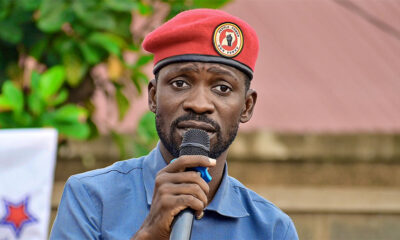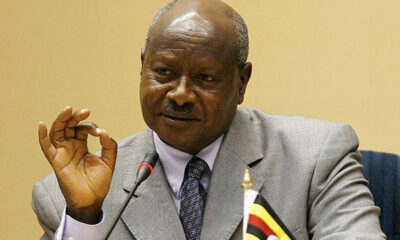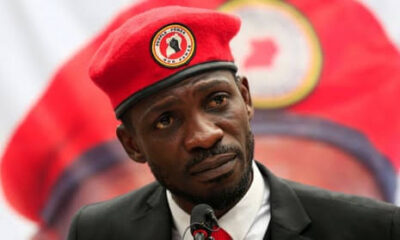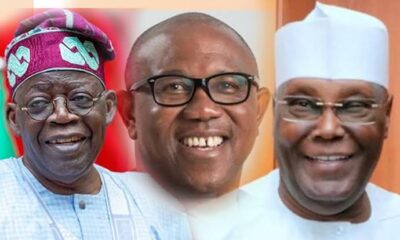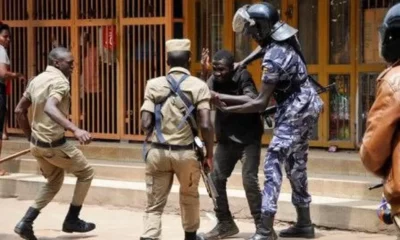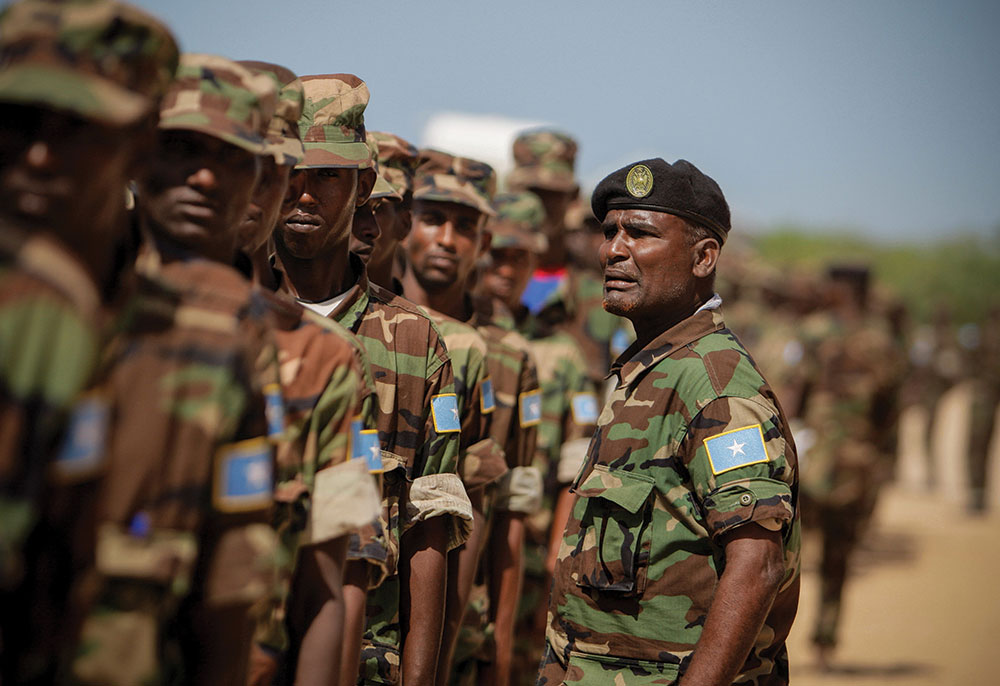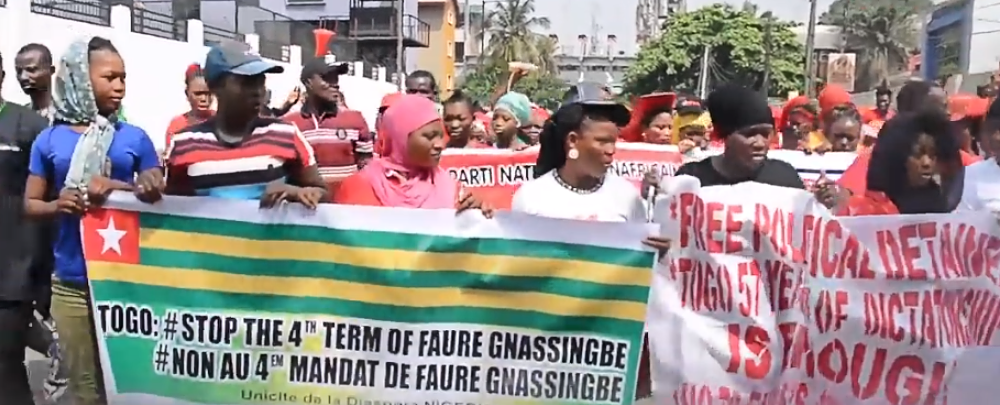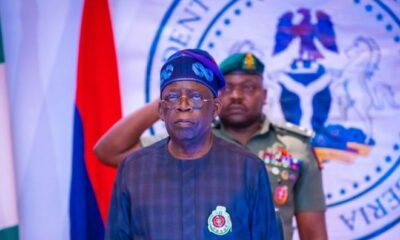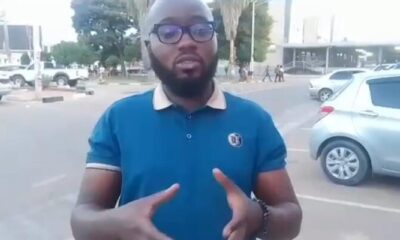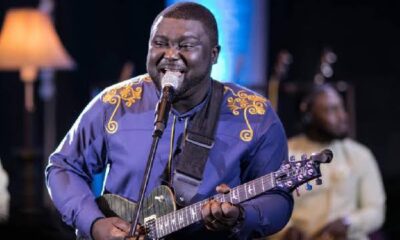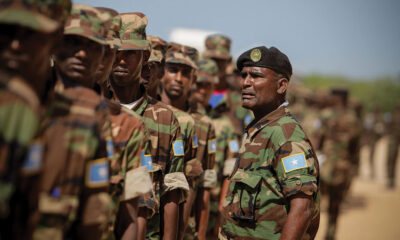Uganda’s vocal legislator, Robert Kyagulanyi Ssentamu, who is popularly known as Bobi Wine has been charged with treason, in the aftermath of the deadly clashes that rocked the West Nile town of Arua on the last day of campaigns to elect a member of parliament for the municipality.
The Deputy Prime Minister, Moses Ali told parliament on Wednesday that Bobi Wine, who was campaigning for independent candidate in the race, Kassiano Wadri will face the Army Court Martial on Thursday.
Bobi Wine was arrested along with other legislators and opposition supporters, including Wadri after police accused them of attacking president Yoweri Museveni’s convoy on Monday.
The incumbent President betrayed his emotions Wednesday, slightly coming short of publicly pronouncing Wine guilty of sponsoring the attack against him.
“It is a big shame to have such confused people who want to use violence to intimidate Ugandans. Nobody has a right to intimidate any Ugandan by word or action,” said Museveni.
“Fortunately, my convoy did not react with fire in response to this attack. This was because we were not equipped for anti-riots. Our intervention could have resulted into people’s death because we only had live bullets.
“We went to the bush to fight for the right of making political decisions by Ugandans without intimidation by word or action. Anybody who threatens this will have himself to blame,” he added.
The state has levied the following charges against Bobi Wine:
• Police spokesperson of north-western region, Josephine Angucia told journalists that Bobi Wine and Wadri are to be charged with malicious damage to the motorvehicle belonging to the convoy of the President.
• Bobi Wine is also charged with unlawful possession of firearms.
• Angucia also confirmed that both Bobi Wine and Wadri have been charged with treason.
Police in Arua reportedly recovered two submachine guns and a pistol from Bobi Wine and Wadri.
Read More: Uganda opposition figure detained after his driver is slain
‘’Kassiano Wadri was arrested with one pistol, which had 12 rounds of ammunition(…) It was found with him during the time of his arrest. He even confessed that he is licensed to have it,’‘ Angucia said.
“For that matter, all have been charged with treason, unlawful possession of firearms, that is for the case of Kyagulanyi Robert and malicious damage to the motorvehicle belonging to the convoy of the President.”
Residents of Arua cast their votes on Wednesday, and vote counting is underway to determine who will replace the deceased Ibrahim Abiriga, who was gunned down in mysterious circumstances in June this year.
Wine is no stranger to controversy.
In 2009, he was accused of punching rival artiste Bebe Cool (Wine reportedly holds a professional boxing licence).
Then the Kampala Capital City Authority, the agency that runs the Ugandan capital, came for him one time, accusing him of constructing a building without following zoning procedures.
Somehow, he broke free of both accusations and his music flourished.
Then the politics started.
When Uganda went to elections in 2016, Wine stayed from the pool of artistes like Chameleone who had collaborated to sing a campaign song for veteran President Yoweri Museveni.
To him, there was nothing knew the old man was offering, having recycled policies, and failed to implement them, for three decades.
It was the first signal of what was to come.
In June 29, 2017, the musician joined politics proper after defeating National Resistance Movement (NRM) and Forum for Democratic Change (FDC) candidates to win the Kyadondo East parliamentary seat as an independent candidate.
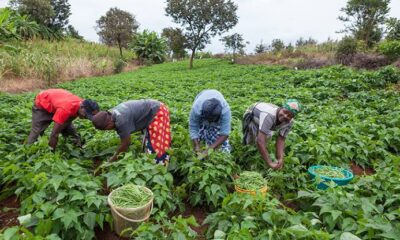
 Tech2 days ago
Tech2 days ago
 Sports2 days ago
Sports2 days ago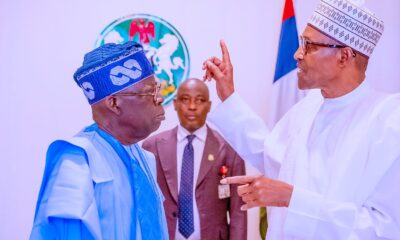
 VenturesNow2 days ago
VenturesNow2 days ago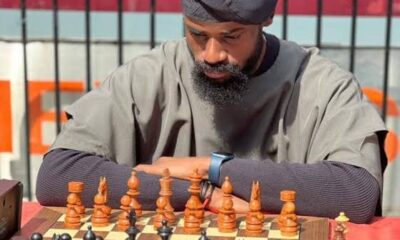
 Behind the News1 day ago
Behind the News1 day ago

